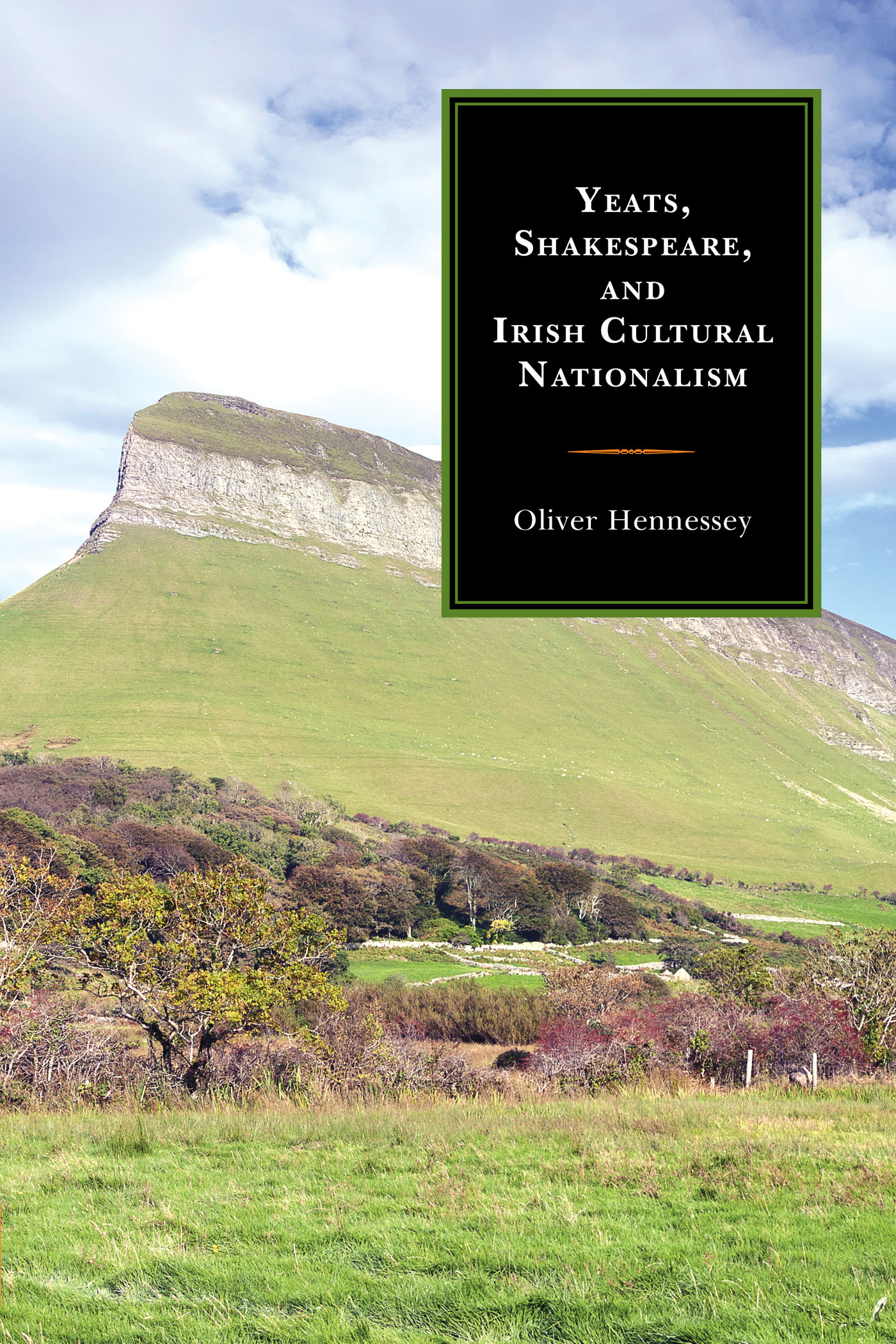Yeats, Shakespeare, and Irish Cultural Nationalism
Yeats, Shakespeare, and Irish Cultural Nationalism
Oliver Michael Hennessey

FAIRLEIGH DICKINSON UNIVERSITY PRESS
Madison Teaneck
Published by Fairleigh Dickinson University Press
Copublished by The Rowman & Littlefield Publishing Group, Inc.
4501 Forbes Boulevard, Suite 200, Lanham, Maryland 20706
www.rowman.com
16 Carlisle Street, London W1D 3BT, United Kingdom
Copyright 2014 by Oliver Hennessey
All rights reserved. No part of this book may be reproduced in any form or by any electronic or mechanical means, including information storage and retrieval systems, without written permission from the publisher, except by a reviewer who may quote passages in a review.
British Library Cataloguing in Publication Information Available
Library of Congress Cataloging-in-Publication Data
Hennessey, Oliver, author
Yeats, Shakespeare, and Irish Cultural Nationalism / Oliver Hennessey.
pages cm
Includes bibliographical references and index.
ISBN 978-1-61147-626-2 (cloth : alk. paper) ISBN 978-1-61147-627-9 (electronic)
1. Yeats, W. B. (William Butler), 1865-1939KnowledgeLiterature. 2. Shakespeare, William, 1564-1616Influence. 3. National characteristics, Irish, in literature. 4. Influence (Literary, artistic, etc.) 5. Nationalism in literature. I. Title.
PR5908.L5H46 2014
821'.8dc23
2014022020
 TM The paper used in this publication meets the minimum requirements of American National Standard for Information Sciences Permanence of Paper for Printed Library Materials, ANSI/NISO Z39.48-1992.
TM The paper used in this publication meets the minimum requirements of American National Standard for Information Sciences Permanence of Paper for Printed Library Materials, ANSI/NISO Z39.48-1992.
Printed in the United States of America
Neath Ben Bulbens buttoks lies,
Bill Yeats, a poet twoice the size
Of William Shakespear, as they say,
Down Ballykillywuchlin way.
Let saxon roiders break their bones
Huntin the fox
thru dese gravestones.
Ezra Pound, Neath Ben Bulbens Buttoks Lies
Acknowledgments
Although recently completed, this book began life as a 2006 Ph.D. dissertation at the University of Alabama, entitled Yeats-speare in Shakespace. I owe a debt of gratitude to the members of my dissertation committeeespecially Professors Gary Taylor, Brandie Siegfried, and Sharon ODairfor their guidance. After some years of neglect, I returned to the project as a junior faculty member at Xavier University of Louisiana in 2009. Now titled Making Yeats-speare, the manuscript took on a new structure and focus. Chapter 3, on Yeatss Late Shakespeare, was completed over the summer of 2010 with the help of a summer stipend from the National Endowment for the Humanities. Numerous passages were polished and tweaked by colleagues in my critical writing circle, a small group of Xavier and Tulane faculty: thanks to David, Kathleen, Nicole, Jeremy, Violet, and Robin. I must thank Professor Andrew Murphy for reading the draft manuscript; his generous and extensive remarks saved me from a number of factual errors and strengthened the book immeasurably. Finally, I offer much thanks to my editors at Fairleigh Dickinson University Press, and at Rowman & LittlefieldHarry Keyishian, Brooke Bures, and Amie Brownfor their wise guidance through production.
This book is lovingly dedicated to my wife, Kara Shaw Hennessey, and to our son, Jameson. Slinte!
Excerpts from Yeatss later essays reprinted with the permission of Scribner Publishing Group from Collected Works of W. B. Yeats, vol. 5, Later Essays, by W. B. Yeats, edited by William H. ODonnell. Copyright 1994 by Michael Yeats. All rights reserved.
William Shakespeare in Yeatss Irish Revival
There is no great literature without nationality, no great nationality without literature.
W. B. Yeats, Letters to the New Island
To illustrate the confluence of culture and politics which had, over the course of the nineteenth century, implicated Shakespeares works within the framework of nationalist ideologies, two anecdotes should here suffice. Both concern 1916, a year of enormous significance in both Irish and English nationalism. On Easter Monday, 1916, Patrick Pearse and his followers led an armed insurrection in Dublin against British rule, seizing key buildings in the city center and proclaiming the existence of an independent Irish nation. Three months later, across the English Channel on the battlefields of northern France, July 1916 brought carnage on an industrial scale during the Somme Offensive. Both the battles of the First World War and the military engagement (and subsequent executions) of the Easter Rising have, of course, received much historical attention, and both are often regarded as watersheds in the political consciousness of England and Ireland, respectively. After 1916, no longer could British citizens disregard the human cost of modern war. In Ireland, 1916 ushered in a version of Irish nationalism hitherto championed by a minority, so that, as Richard English writes, the most emphatic achievement of 1916 was to destroy a constitutional, parliamentary, conciliatory version of nationalism (a nationalism founded on the principles of compromise, trust, tolerance, and opposition to political violence or coercion). nationalist and Unionist.
This, however, is a book about literary nationalism, and accordingly, the events with which I am concerned are not military, but cultural. That being said, they are decidedly political. The year 1916 was also the tercentenary of the death of William Shakespeare. On Wednesday of Easter week, the pro-Union IrishTimes greeted Dublins citizenryat least those who read the Timeswith the following headline: How many citizens of Dublin have any real knowledge of the works of Shakespeare? Could any better occasion for reading them be afforded than the coincidence of enforced domesticity with the poets tercentenary? Under military curfew, following the Rising, acquiescent Times readers might well have been asking themselves, which of Shakespeares plays does fit these tumultuous times? Julius Caesar, perhaps, with its dramatization of conspiracy, coup, and murderous, fickle crowds of the angry and confused; or might it have been Henry V, a play whose ironic chorus can only comment upon, and not halt, the imperialist vigor of an English monarch rampant?
As a part of the tercentenary celebrations, the year 1916 also saw publication of A Book of Homage to Shakespeare, a tome dedicated to the veneration of the greatest Englishman. The very purpose of the book, Copplia Kahn argues, was to assert the continuity of a single national identity, England, from the medieval past to the imperial present, by invoking Shakespeare. A heady mixture of Shakespeare worship and imperial enthusiasm is manifest, for instance, in the work of one contributor, William Pember Reeves. Reevess central metaphor functions by fastening the popular-critical commonplace of Shakespeares far-ranging imagination onto a romantic vision of global exploration:
The mind of Shakespeare voyaged forth with them.
They bore his universe of tears and mirth
In battered sea-chests to the ends of earth,
So that in many a brown, mishandled tome,
Compacted spirit of the ancient home,
He for who man the human chart unfurled
Explored eight oceans and possessed the world.
Next page
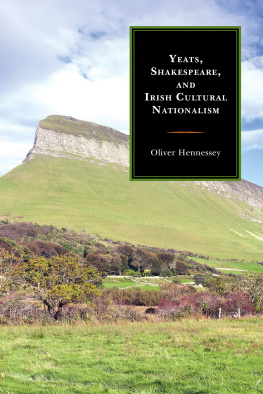
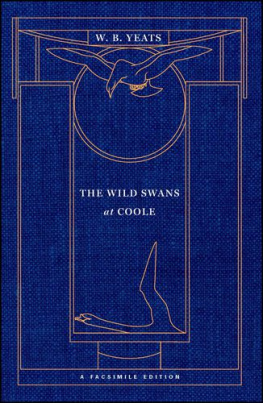
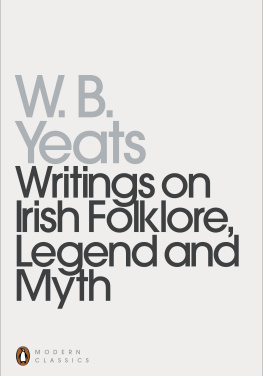
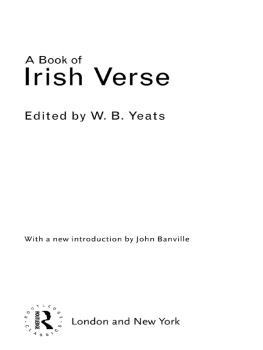

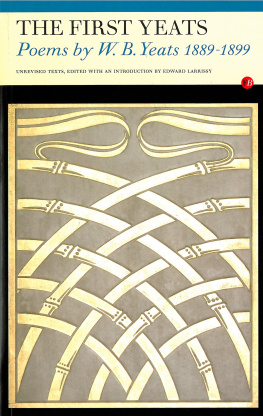
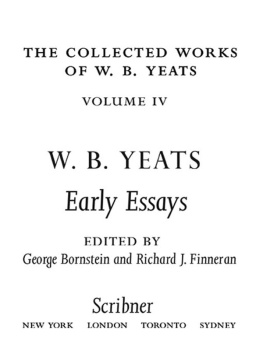


 TM The paper used in this publication meets the minimum requirements of American National Standard for Information Sciences Permanence of Paper for Printed Library Materials, ANSI/NISO Z39.48-1992.
TM The paper used in this publication meets the minimum requirements of American National Standard for Information Sciences Permanence of Paper for Printed Library Materials, ANSI/NISO Z39.48-1992.